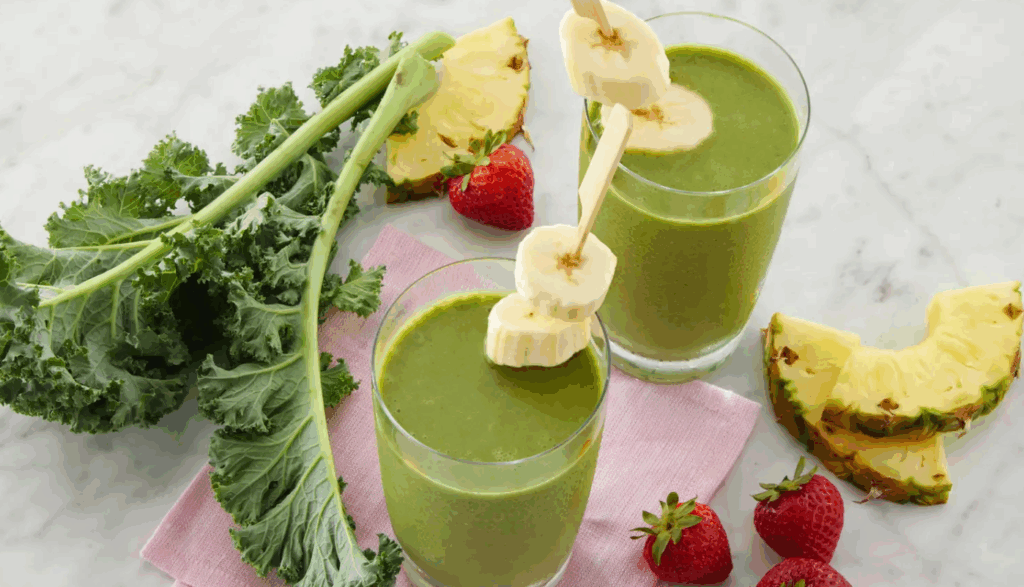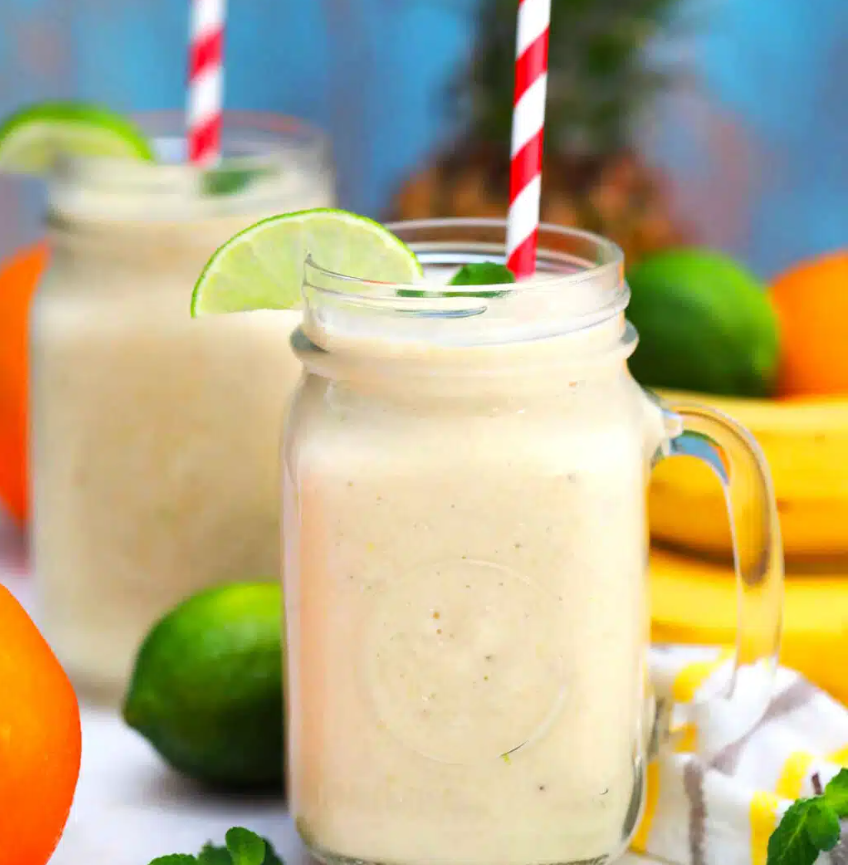Is Tropical Smoothie Healthy? Unveiling Nutrient Truths
Tropical Smoothie’s healthiness depends on the specific ingredients and portion size. Some options are low in calories and high in nutrients.
Smoothie enthusiasts often seek out Tropical Smoothie for a refreshing and nutritious beverage option. Known for its wide range of smoothies, this popular chain can be a health-conscious choice, especially when you opt for fresh, whole fruits and vegetables in your drink.
The key to maximizing the health benefits lies in avoiding add-ons like sugars and choosing smoothies with a good balance of macronutrients. With the rise of wellness trends, Tropical Smoothie has adjusted its menu to offer more wholesome ingredients, catering to customers who are mindful about what they consume. For those tracking their dietary intake, Tropical Smoothie also provides the nutritional information for each of its offerings, making it easy to stay aligned with your health goals while enjoying a delicious treat.
Is Tropical Smoothie Really A Health Kick?
Tropical smoothies often seem healthy because they contain fruit. But not all smoothies are good for you. Some have lots of sugar or calories. People think they help with weight loss. This is not always true. Fruits have natural sugars, but some shops add extra. This can make them not so good.
Some smoothies also have dairy or sweeteners. This changes how healthy they are. Just because it has fruit, doesn’t mean it’s the best. It is smart to look at what is inside your smoothie. Make sure it has good things like vitamins and not too much bad stuff. Choose smoothies with real fruit and no extra sugar. That way, your body gets what it needs. It is important to check the ingredients before you drink.

Credit: designerwellness.com
Decoding The Nutritional Value
Tropical smoothie lovers often wonder about its health benefits. Tropical smoothies are rich in vitamins such as Vitamin C and Vitamin A. These vitamins help our body fight germs and keep our eyes healthy. Not only vitamins, but they also contain important minerals like potassium and magnesium. Potassium is good for the heart, and magnesium keeps bones strong.
Although smoothies seem healthy, they can have lots of sugar. Natural fruits add sweetness, but some smoothies also include added sugars. It is vital to check the nutrition label to understand the sugar content. Choosing smoothies with no added sugars can be a healthier option for both adults and children.
Tropical smoothies often contain protein powders and supplements. These can boost nutritional value. But, not all supplements are the same. Some have added sugars and ingredients that aren’t needed. It’s key to pick powders that have pure protein like whey or pea.
Many smoothies also include flavor enhancers. These give a better taste. They can be natural extracts like vanilla or lemon. They can also be artificial flavors, which may not be healthy. It’s best to choose smoothies with natural flavors. These come from real fruit and herbs. They keep your smoothie tasty and good for you.
The Calorie Conundrum In Tropical Smoothies
Tropical smoothies can be both tasty and nutrient-packed. It’s crucial to understand the calorie content in these beverages though. A smoothie’s health value isn’t just about calories. Nutrients like vitamins and minerals are key.
So, consume smoothies in moderation as part of your daily caloric intake. Certain smoothies contain high calories and sugars. Balance them with low-calorie meals throughout the day. This way, smoothies can fit into a healthy diet without excess calorie intake.

Making Health-conscious Smoothie Choices
To ensure your tropical smoothie is healthy, focus on nutrient-dense ingredients. Start with a base of greens like spinach or kale for vitamins. Fresh fruits like berries, mangoes, and bananas add natural sweetness and fiber. Proteins such as Greek yogurt or plant-based powders help in muscle repair. Include healthy fats from avocado or chia seeds for energy. Lastly, boost with superfoods like spirulina or acai. These choices increase the smoothie’s nutritional value.
Certain store-bought smoothies can have unwanted ingredients. Avoid added sugars and syrups which increase calories. Stay clear of artificial flavors and colorings, as they offer no health benefits. Be wary of “health drinks” that use excessive fruit juice concentrates; they raise sugar content. Lastly, keep an eye on portion sizes; bigger isn’t always better. Smaller, nutrient-rich smoothies can satisfy without extra calories.
Homemade Vs. Store-bought Tropical Smoothies
Making your own tropical smoothie lets you pick fresh, healthy ingredients. A big plus is cutting out unnecessary sugars often found in store versions. By blending at home, you ensure no preservatives or artificial additives sneak into your drink.
Cost-wise, homemade smoothies might save you money in the long run. Initial investments include a good blender and bulk buying fruits. But, think of the long-term health benefits and savings compared to daily store purchases.

Integrating Tropical Smoothies Into A Balanced Diet
Understanding portion sizes is key to enjoying tropical smoothies healthily. A large smoothie may seem tempting, but excessive calories can add up. To maintain balance, opt for a small or medium serving. Pay attention to the ingredients list too. Natural fruits and vegetables boost nutrient intake. Steer clear of sugary syrups and additives that offset benefits.
Smoothies can play a smart role in meal planning. They should complement meals, not replace them. Consider having a smoothie as a snack or part of a nutrient-packed breakfast. This ensures you get a variety of foods throughout the day. Remember, diversity in your diet is essential for good health.

Credit: designerwellness.com
Frequently Asked Questions On Is Tropical Smoothie Healthy
What Nutrients Are In Tropical Smoothies?
Tropical smoothies typically contain a variety of nutrients, such as vitamin C, fiber, and potassium. They often include fruits like mangoes, pineapples, and bananas, which add natural sweetness and essential vitamins. Always check the ingredients for a complete nutrient profile.
How Many Calories Are In A Tropical Smoothie?
The calorie content in tropical smoothies can vary widely, typically ranging from 200 to 500 calories per serving. The specific count depends on the fruits used, any added sweeteners or supplements, and the beverage’s size. It’s best to look at the nutritional information for exact values.
Can Tropical Smoothies Be Part Of A Diet Plan?
Absolutely, tropical smoothies can be incorporated into a diet plan. For a healthier option, opt for smoothies without added sugars and include a variety of fruits and vegetables. Moderation is key, as smoothies can be high in sugar and calories when consumed in large quantities.
Are There Any Added Sugars In Tropical Smoothies?
Many tropical smoothies may have added sugars, especially those bought at commercial outlets. It is important to read the ingredient list or ask about the sugar content before purchasing. Homemade smoothies can easily avoid added sugars by relying on the fruit’s natural sweetness.
Conclusion
Navigating the world of healthy eating can often feel like a daunting task. Tropical Smoothie Cafe’s offerings may appear nutritious at first glance, but it’s crucial to examine their menu carefully. Opt for ingredients rich in vitamins and low in added sugars to make the most of your smoothie experience.
Remember, balance is key to maintaining a healthy lifestyle. Choose wisely, and enjoy the tropical flavors smartly!



